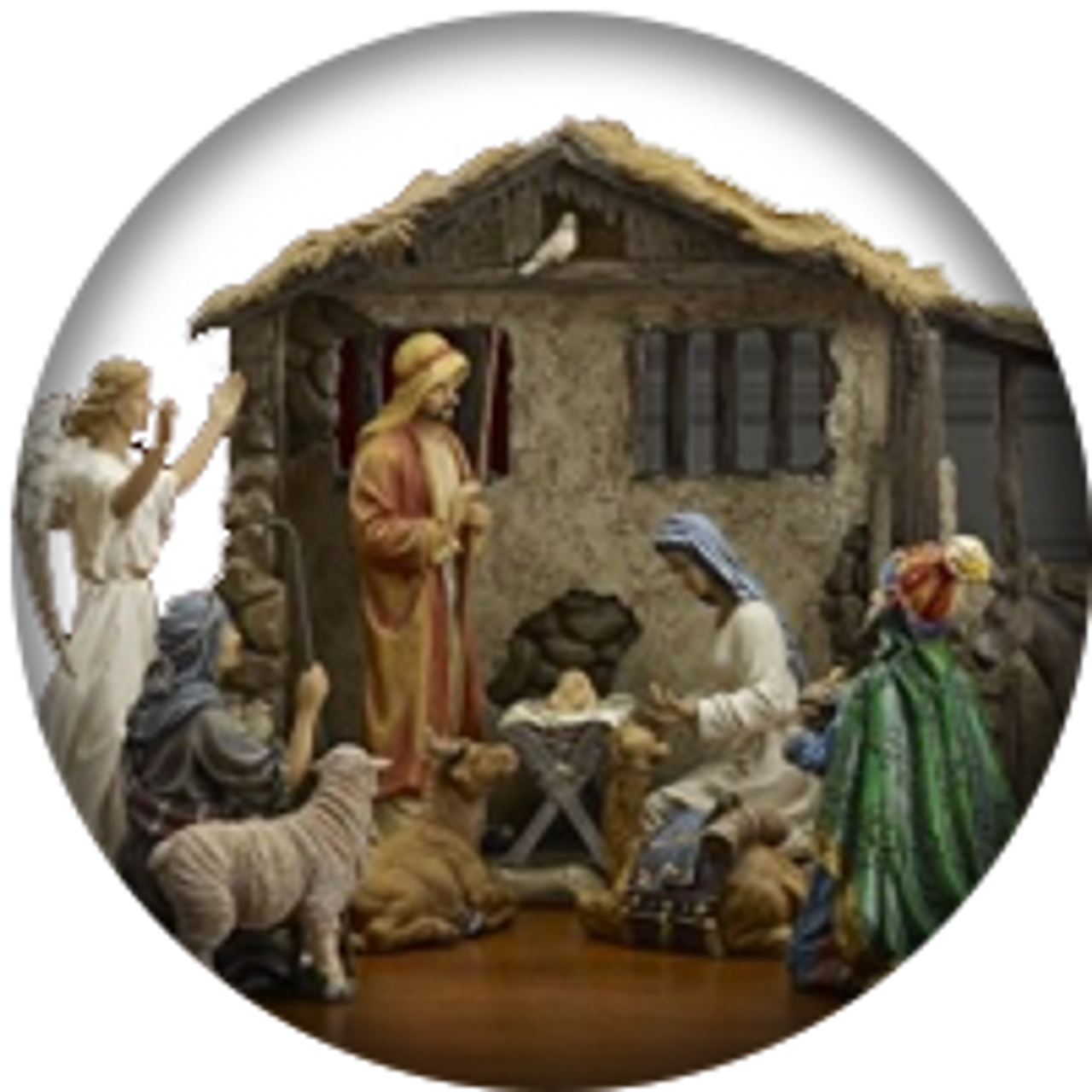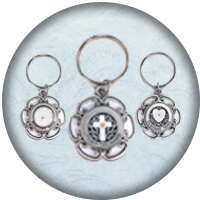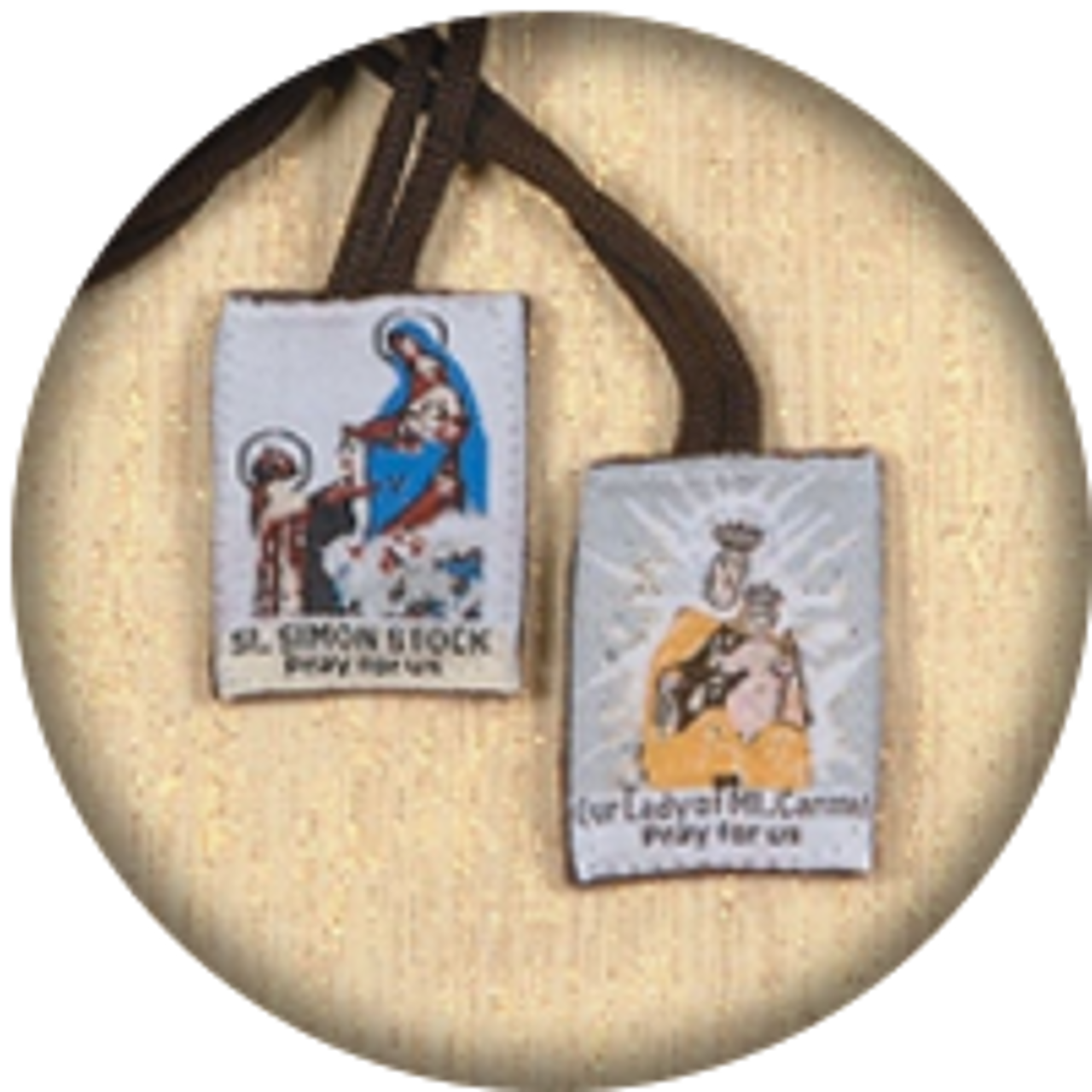MORE THAN 30 PIECES OF SILVER— THE PRICE JESUS PAID FOR OUR SALVATION, Part IV of the Paschal Mystery Series
Kathy Boh on 7th Apr 2020
Part IV of the Paschal Mystery Series:
MORE THAN 30 PIECES OF SILVER—
THE PRICE JESUS PAID FOR OUR SALVATION
As we celebrate Palm Sunday, we begin Holy Week. The focus this week is on the days and events leading up to the indescribable Passion, death and glorious Resurrection of Jesus Christ from the grave—culminating in our celebration of Easter Sunday.
From the priest’s greeting and address after the ANTIPHON for Palm Sunday, New Saint Joseph Sunday Missal **, we hear:
“Since the beginning of Lent until now we have prepared our hearts by penance…” ** Today we gather together to herald… the beginning of the celebration of our Lord’s Paschal Mystery…his Passion and Resurrection. For it was to accomplish this mystery that he entered his own city of Jerusalem… [L]et us follow in his footsteps, … being made by his grace partakers of the Cross, [that] we may have a share in his Resurrection and in his life.”
TO JERUSALEM TO DIE
Jesus came to Jerusalem knowing that He would die. It was time. His Father’s chosen time. The footnote in the NABRE Bible version for Luke 19:28 says that “Luke suggests that this was a lengthy ministry in Jerusalem.” No matter how long or short it was, we know that there were times when Jesus deliberately avoided Jerusalem, knowing the intentions and motives of the Pharisees, and their desire to entrap and even kill Him. He continually sought both His Father’s will and His Father’s appointed time.
We quote from a homily of Pope Francis given in St. Peter’s Square in 2013:
"‘Jesus enters Jerusalem in order to die on the Cross. And it is precisely here that his kingship shines forth in godly fashion: his royal throne is the wood of the Cross! Why the Cross?
Because Jesus takes upon himself the evil, the filth, the sin of the world, including the sin of all of us, and he cleanses it, he cleanses it with his blood, with the mercy and the love of God. Let us look around: how many wounds are inflicted upon humanity by evil! Jesus on the Cross feels the whole weight of the evil, and with the force of God’s love he conquers it, he defeats it with his resurrection.
This is the good that Jesus does for us on the throne of the Cross. Christ’s Cross embraced with love never leads to sadness, but to joy, to the joy of having been saved and of doing a little of what he did on the day of his death.’” 1
FOR THE SAKE OF THE JOY
“For the sake of the joy that was set before Him, He endured the cross.”
This scripture—a simple little statement—says so very much concerning Jesus regarding his own perspective toward the worst time in His earthly life: “For the sake…” [Hebr. 12:2]. I believe that literal volumes could be written on that one verse—and all the foundations of truth that lie behind it.
This reminds me of the opening statement in the book, Tale of Two Cities: “It was the best of times, and the worst of times…” Ours is a tale of two kingdoms.
Quite different things were going on surrounding one horrifying reality. The kingdom of this world has not seen a match for the tribulation that Jesus went through. The “god” of the kingdom of this world (and some earthly men of religious and political power) thought—for a brief moment—that they had put an end to Jesus Christ and all He is and was. But the kingdom of heaven could not rejoice more over the results of His life freely given, and all that followed—all the salvations, deliverances, healings, new life, graces, fruitful lives, gifts, blessings, love given and received—then... now... and forever and ever after. ALL—because of His incomparable sacrifice.
Faith gives us sight to see...
If we go by sight and not by faith, we, too, could make the mistaken judgment of “supposed” victory of the world and the devil over Jesus Christ in His passion and death. But the enemy's earthly victory was both deceptive and temporary… as faith gives us sight to see. Though the suffering and pain endured was quite horribly and tangibly felt, the joy that was the motivator to endure the cross was connected, basically, to us… and concerned us. Jesus knew Himself as the Savior… the Way… the Truth… the Life… the gate (the sheep gate)… the door that would open everlasting life and countless blessings to “whomsoever” would believe and “enter through the narrow gate”. [Mt 7:13]
Isaiah 53 sheds some light.
Throughout this chapter, Isaiah foretells the suffering of Jesus Christ with amazing description and detailed accuracy. He also sheds light on God’s plan and on Christ’s motivation. "...But it was the Lord's will to crush him with pain, by making his life as a reparation offering...their iniquity he shall bear...the Lord's will shall be accomplished through him... "
The joy that lay ahead? "He shall see his offspring [blog note: those “born again” by water and the (Holy) Spirit, to use Jesus’ words to Nicodemus], shall lengthen his days..." We are his "offspring", whom he sees and delights in... and his days (physically) were lengthened in resurrection life—as ours will be eternally.
How did his knowledge of what lay ahead impact him? "Because of his knowledge, he shall be content" [have that quiet joy within].. "My servant, the just one, shall justify many...Therefore, I will give his portion among the many" [His new life; His righteous justification; His victory over sin and death; His everlasting life... to share with new brothers and sisters, sons and daughters of God the Father, etc.], "and he shall divide spoil with the mighty..."
"...Because he surrendered himself to death, and was counted among the transgressors, bore the sins of many, and interceded for the transgressors." [Isa. 53:10-12]
How did Jesus allow Himself to remove His attention from the pain screaming from every nerve in His body, so that He could “focus” on the (“true …honorable… just… pure… lovely… gracious… excellent… worthy of praise” [Phil 4:8]) “joy” that “was set before Him”? [We studied these verses in detail in earlier parts of this series, particularly in “Part II: COUNT IT ALL JOY? FINDING JOY in the Tough Times.”] What could cause such joy amid (or at the anticipation of) the all-time epitome of the opposite of “happy experiences”? Was it that he could imagine those who would come to—and through—Him to salvation and eternal life… knowing far more than we do exactly what that meant to have or to miss, forever?
There are several things that Jesus could have thought, or He could have known—as a joyous thought. One would be: that because He was willing to endure the horrors of suffering that should have been ours—He could not only spare us (paying a price we could not possibly pay as sinners), but He could do what only He could do... and was sent to do. He knew that only He could be the sacrifice-price—as perfect holiness Personified … Son of God, but also fully God, while being fully man. He could then (prefer to) think of all the benefits to and for us with joy, rather than focus on (although not ignoring) the sure knowledge of the excruciating ordeal that He would, and did, endure.
The immense motivation that He found could only be explained by a love that is astronomical, unspeakable, and far beyond our ability to comprehend. Because of His totally selfless love for us He was able to focus on the fact (by faith and trust in His Father... as a human being subject to fear/doubt/failure/ temptations, etc.) of some soon-coming-future joyous realities. And, by faith, He considered them as “real” and good and true—though as yet, unseen.
He knew that after His brutal torture and death, there would be so much (and so many) to rejoice over: our cleansing from sin and resultant new life; the availability of forgiveness, grace, power from on high, healing, deliverance—and every blood-bought blessing that anyone would ever receive… for millions of lives and lifetimes, and for the duration of eternity itself.
This God of love—Who IS “Love”—allowed His love to carry Him… to be the reason, the driving force, and the primary influence (amid all the torturous fleshly reasons to quit or count us “not worth the price”) to endure the unendurable. What level of love (at the thought of, or the immediate experience of, such agonizing suffering) must someone have/ possess/ abide in… to even consider “joy” as an option amid such potential or very present and cruel torment?
Certainly we can all agree that “foregoing present happiness” for our sake is clearly what Jesus chose. How did Jesus—as human/ "man" (while simultaneously being "God" but) dependent on His Father’s care and guidance, and on the Holy Spirit’s presence—find that joy, in the midst of circumstances that totally ruled out “happiness”? “For the sake of the joy that lay ahead…”
Yes, angel(s) ministered at the Garden of Gethsemane. He had the presence of the Holy Spirit (Who had been manifested at His baptism in the River Jordan). It is clear, however, that He lost the emotional feeling of connection with the Father as He cried out, “My God, My God—Why have You forsaken Me?” There is more to the meaning of that verse than an emotional sense of rejection. 2Cor 5:21 says that “[God] made Him to be sin who did not know sin so that we might become the righteousness of God.” And Psalm 22 speaks additional truth regarding His statement—as we will see later in this article.
Similar to 2Corinthians 5:21 is Romans 8:3.
It has been explained (by many through Christian history) that the justice of the Father could not be in the very presence of sin… specifically, the [large load of] sin that Jesus carried. Holiness and sin could not co-exist. Yet, in a very real sense, they did… in the flesh of the Being of the One Who became “in the likeness of sinful flesh” that we might receive His righteousness…His “right standing” with the Father. “For what the law, weakened by the flesh, was powerless to do, this God has done: by sending his own Son in the likeness of sinful flesh and for the sake of sin, he condemned sin in the flesh…” [Rom. 8:3]
.
HIGHER THOUGHTS AND WAYS
As immeasurable as some pain, struggle, and loss can feel, it seems like a contradiction to count “all” things as “joy”—as we are exhorted to do. [James 1:2-8] On a merely human level, we would call it irrational, impossible and foolish. If we don’t look any deeper into “higher” wisdom… if we only go by our limited sight and natural ability, or our feelings and impulses, this choice and walk would be impossible. It may be difficult for us to imagine, but it must have been almost every second that Jesus had to continue to make and keep this choice… when pain was excruciating and continuous on every level.
Another verse can help us here. Isaiah chapter 55 [vs 8-9] says:
“’For My thoughts are not your thoughts
Nor are your ways My ways’, declares the Lord.
‘For as the heavens are higher than the earth
So are My ways higher than your ways
And My thoughts than your thoughts.’”
We see that God has higher thoughts and higher ways, and more-than-panoramic vision and perspectives. But sometimes, we gloss over these words and do not let them sink deeply enough into our conscious awareness and understanding—and grasp their extreme impact.
We look at Holy Week and still experience the mounting crescendos in the Paschal mystery—both Jesus’ and our own.
“Since the beginning of Lent until now we have prepared our hearts by penance…” [Please see above reference.**] That means repenting and changing our hearts, minds and patterns of thinking, imagining, planning and doing that are contrary to the love of God and love of others. These words from Isa. 55:8-9 are a constant reminder that we need to continually plug into the Lord’s wisdom, ways and thoughts as we pursue our journey—if we truly call Jesus Lord and seek to follow Him as He and the Father commanded. If we rely only on mankind’s assumptions and presumptions, we will find that they continually fall short. We may find that out sooner—or find that out later, as the shortfall accumulates. The Bible history of Israel is meant to be a lesson for us.
No matter what we see or think is the best man-made solution, system, or “way”…or the smartest answer… we need to humbly approach God for His higher ways, thoughts and wisdom. Sometimes our human and worldly ways “work” for a time, or for a select few. But eventually, what has been hidden and placed on faulty foundations (remember the “sand” and the “rock” that Jesus spoke of?) becomes evident. It is revealed in some way, or it fails or collapses.
Even the best of mankind’s answers, systems, ways and means fall short of the way that God desires to lovingly rule over His people, 24/7. (Remember Israel? God was not desiring to give them an earthly king. But they sought to be like the other countries and kingdoms around them, so they desired and petitioned. So God gave them King Saul.) Scripture speaks much of life and decisions made without God being God, Lord and King over the people and situation—even and especially over His own religious people. In the Bible, God speaks His wisdom regarding the failures. We find the scriptures full of God’s answers, His love and His kingdom’s truth and ways. That’s precisely what He is calling us to seek and to find this Lent and Easter season. New Life. New Love.
God’s love is impeccably complete (He IS Love) and His judgments are perfectly pure, accurate and merciful. He also can do the impossible, in and through us. His grace is beyond our comprehension.
LOVE PAID THE PRICE
The word of God is true when it says that Jesus was tempted in every way (known to man) but did not sin. “For we do not have a high priest who is unable to sympathize with our weaknesses, but one who has similarly been tested in every way, yet without sin.” [Hebr. 4:15]
By being God, He did not cease to remain fully human. It is impossible to know the extent—far beyond even just the physical, physiological torments that Jesus went through—of mental and emotional suffering, temptations and all manner of demonic attacks against his mind, his emotions, his spirit as He felt the shame and pain with every nerve cell in excruciating agony… He bore the (active, omitted, brutal, mental, violent, emotional, jealous, cruel, hidden, endless-list-of-) sins of thousands of years of human transgressions and hate… all compressed into the long hours of His Passion and death. And we have not even skimmed the surface of what He must have endured during the rest of His lifetime, nor the intensity of the pain of anticipation of all these horrific, but purpose-filled events.
FEELING ABANDONED... PSALM 22
Above, we referred to Jesus' sense of abandonment—His words to God the Father. These words come from Psalm 22. This psalm begins as a cry and ends with hope and affirmation. It parallels the cry of faithful confidence in the outcome of the crucifixion.
We printed line-by-line excerpts in Part II of this series to show the progression of strongly stated themes and assertions presented in Psalm 22. Certain words and phrases precisely apply to Jesus’ crucifixion and Passion. We showed them in Part II to demonstrate part of the realm of thoughts and feelings that could have been in Jesus’ mind as He experienced His own horror.This psalm is helpful toward understanding a fuller perspective that Jesus could well have had and most probably did have. Psalm 22 is one with which He would have been very familiar, based on His knowledge and religious training. He chose to speak these words from the cross. Circumstantially, dramatically and demonstratively, Jesus felt abandoned—deserted—by the Father God Who was the only One on Whom He could depend… yet He still chose to still trust and obey that very same Father. 2
“Finding joy in the middle of difficulty can only happen as we find somewhere for our hearts and heads to land besides ourselves, our limited thoughts, and our own human inclinations and reactions.” 3
We, too, can follow the focus of these same words in this psalm. They speak first of abandonment, then cries for help, and then of hope and purpose. We will include, here, just two verses that speak hope, after the expressed details of pain and felt abandonment. The quotes are from the New American Bible, with verse numbers introducing each quote.
25 For he has not spurned nor disdained the misery of this poor ` wretch...
32 The generation to come will be told of the Lord, that they may proclaim to a people yet unborn the deliverance you have brought." 4
PASSOVER/ PESACH
Pope Benedict connected our Holy Week to the Jewish Passover—which, of course, Jesus solemnly celebrated on Holy Thursday. “‘Christians and Jews share [the hope of freedom and redemption through the Covenant]; we are in fact, as the prophets say, “prisoners of hope” (Zech 9:12). This bond permits us Christians to celebrate alongside you, though in our own way, through the Passover of Christ’s death and Resurrection, which we see as inseparable from your own, for Jesus himself said, ‘Salvation is from the Jews’.” (Jn 4:22).
Our Easter and your Pesach, while distinct and different, unite us in our common hope centered on God and his mercy.’ (Pope Benedict XVI, April 17, 2008) The Pope is saying that both the Jews’ liberation through Moses from slavery in Egypt and our liberation through Christ from the bondage of sin, death, and the devil come from the same source: God’s mercy.” [p. 42] 5
JESUS IS WOUNDED OUT OF LOVE FOR US…. AND REIGNS WOUNDED
“For Lent 2007, Pope Benedict’s theme [was] the Scripture passage,
‘They shall look on him whom they have pierced’ (Jn 19:37). He weaves in mercy by bringing us to the foot of the Cross... [p.35] ‘The Lord took his wounds with him to eternity. He is a wounded God; he let himself be injured through his love... His wounds are a sign that he understands and allows himself to be wounded out of love for us.
These wounds of his: how tangible they are to us in the history of our time! Indeed, time and again, he allows himself to be wounded for our sake. What certainty of his mercy, what consolation do his wounds mean for us!...And what a duty they are for us, the duty to allow ourselves in turn to be wounded for him!’ (Pope Benedict XVI, Divine Mercy Sunday, April 15, 2007)
These powerful words of our Holy Father are enough to leave us speechless. He is saying that since Christ brought His glorified body with its wounds into eternity, He now reigns as a wounded God. His wounds are a tangible sign that He understands our plight, and even now, in ways we can’t fathom, He allows Himself to be wounded out of love for us.” [p. 38] 6
Jesus “reigns as a wounded God”. That is difficult for us to understand. He rose with His resurrected (“healed”) body in a form that we cannot quite grasp or describe. Yes, He is victorious! And all of heaven rejoices! But He lives—not as would be quite justified and even envisioned by our worldly minds: (not) as this glorious King in blinding light, “kicking back” and “just” running the show and exhibiting his power.
Instead, He works continually, “ever-interceding” as our High Priest, deeply in touch with our pain and our needs, our sin and our hurting one another—and not just “resting” from His horrific assignment on this earth. His heart, His care and His attention are still focused on His sheep—lost and wandering, often “clueless”, and in need of our Good Shepherd… whether we realize it or not…we, His sheep.
LETTING CHRIST LIVE THROUGH US—
SHARING CHRIST AND HIS SALVATION IN WORD AND DEED
No one was put outside of His circle of loving kindness and willing friendship. Thus, “No one has greater love than this, than to lay down one’s life for one’s friends.” [Jn.15:14] As with everything else in our relationship with God, the gestures of friendship and interest, care and attention, fidelity and steadfast love is the burden that HE readily and unwaveringly carries (as in “easy yoke, light burden” on us). He is the God Who continues to fulfill His covenant, and His covenant love, even when we fail, turn away, or put anything (and sometimes everything) ahead of, and in place of, Him. He continually seeks us through His immense love and merciful grace, and stands as the Prodigal Son’s Father—watching and waiting eagerly to embrace us. 7
Jesus became our everything: He calls us to salvation.
“…Christ himself, the slaughtered Lamb, calls to all peoples: ‘So come, you of all races of men who are ensnared by your sins and receive forgiveness, the Passover of your salvation; I am the Lamb slain for you; I am your redemption, your way, your resurrection, your light, your salvation, and your king. It is I who lead you to the heights of Heaven, I who will show you the Father who exists from eternity, I who will raise you to life with my right hand.’” (General Audience, March 31, 2004, St. John Paul II) 8/9
St. Paul said in the epistle to the Galatians:
“I have been crucified with Christ, yet I live, no longer I, but Christ lives in me…” [Gal. 2:20]
“…I even consider everything as a loss because of the supreme good of knowing Christ Jesus my Lord. For his sake I have accepted the loss of all things… that I may gain Christ and be found in him… to know him and the power of his resurrection and the sharing of his sufferings by being conformed to his death, if somehow I may attain the resurrection from the dead.” [Phil. 3:8, 10, 11]
“For if we have grown into union with him through a death like his, we shall also be united with him in the resurrection… If, then, we have died with Christ, we believe that we shall also live with him. We know that Christ, raised from the dead, dies no more; death no longer has power over him… he lives for God.” [Rom 6:5, 8, 9, 10b]
All this begins, and continues, as we trust…
“Trust, then, means to believe in Jesus, to love Him, and to hope in Him. It means to be totally absorbed in Jesus as our Lord and Savior, to rely completely upon Him”. 10
If we want more of a fullness of His grace and gifts to live in “[His] kingdom come”, it means to be getting to know Jesus as the true Savior and daily King that He intends to be for us… to rely more completely upon Him for guidance, wisdom and grace.
“We desire to have His mind and thoughts, His will, His power, His Heart, and His total trust in the Father. To sum up, when we really trust in Jesus, we can say with the Apostle Paul: ‘It is no longer I who live but Christ who lives in me’.” [Gal.2:20] 11
Pope Francis says: “God takes the initiative… ‘he has loved us first’ [1 Jn. 4:19]… he alone ‘gives the growth’ [1 Cor. 3:7]. This conviction enables us to maintain a spirit of joy in the midst of a task so demanding and challenging that it engages our entire life. God asks everything of us, yet at the same time he offers everything to us.” [blogger’s italics] 12/13
LOVE IS WHY HE CAME—THE WAY. THE GATE. THE DOOR
This One—God, Himself—sent to earth to save and deliver (after we had rejected every other one—the prophets—that God sent to bring truth or light)—made His grand entrance into our fallen presence by being born in a stable (crowded, smelly, unclean). Being the all-knowing and ever-wise God, with myriads of choices in time and place to make His presence known on earth, it was no accident on His part to come into such unpleasant circumstances (cold; his birth unattended by loving relatives or familiar faces; noisy; lacking privacy, etc.).
I believe that part of the purpose for those choices was to “announce”, so to speak, to our secular and religious worlds (and all our secular and religious systems) that this God of Love was and is willing to come into our messes… into our “uncomfortable” places in life. He is willing to endure and deliver/ redeem/ restore our broken ways. It’s why He came.
Love is why He came.
Jesus truly became the “gate”… the “door”… the “Way” between two unmixable entities. An open portal was made—by the perfectly holy and righteous One, Who “became sin” for our sake, without actually sinning, or doing anything but loving! And a “flood” was released through a portal torn (as surely as His own Body was ripped and torn, releasing a flood of blood), allowing heavenly graces and power, healing and restoration to be unleashed into every fallen and broken person and place on earth that would choose to receive Him and all that He offers us. 14
As we close, we turn to the words, again, of St. Pope John Paul II:
“In the end, Christ himself, the slaughtered Lamb, calls to all peoples: ‘So come, you of all races of men who are ensnared by your sins and receive forgiveness, the Passover of your salvation; I am the Lamb slain for you;
I am your redemption, your way, your resurrection, your light, your salvation, and your king. It is I who lead you to the heights of Heaven, I who will show you the Father who exists from eternity, I who will raise you to life with my right hand.’” (General Audience, March 31, 2004, St. John Paul II) 15
“Remember that the passion of Christ ends always in the joy of the Resurrection, so when you feel in your own heart the suffering of Christ, remember the Resurrection has to come, the joy of Easter has to dawn. Never let anything so fill you with sorrow as to make you forget the joy of the Risen Christ!” [Teresa of Calcutta] 16/17
“I have been crucified with Christ, yet I live, no longer I, but Christ lives in me…”[Gal. 2:20] “It is Christ in you, the hope for glory.” [Col 1:27b]
Let us not let this Lenten season come without seeking to receive all the graces and healing and restoration that Jesus paid such a high price to purchase for each of us.
Let us let HIM become a new gate, a new door, a new way for us to live this Lenten and Easter season… and beyond. 18
The first Sunday after Easter is Divine Mercy Sunday. We continue connecting to the theme of God’s mercy and love, in our series on Divine Mercy—focusing on its meaning, revelation and relevant apparitions.
The Divine Mercy series comes in three parts.
Part I: THE HEART OF THE TRINITY: LOVE AND MERCY
Part II:MERCY IN THE MODERN WORLD—
WARNINGS MARK HIS MERCY
Part III: DIVINE MERCY THEME IN PAPAL WRITINGS
FOOTNOTES:
1.THE LIVING GOSPEL—Daily Devotions for Lent 2015,by Nicholas Ayo, C.S.C., 2014, Ave Maria Press, Notre Dame, Indiana, referenced in PART II
2.PART II THE CROSS OF CHRIST… THE “JOY” IN IT?
3.PART IIB COUNT IT ALL “JOY”?
4.PART II THE CROSS OF CHRIST… THE “JOY” IN IT?
5.POPE BENEDICT’S DIVINE MERCY MANDATE, by David Came, Marian Press, Stockbridge, MA 01263, referenced in PART I
6.Ibid.
7.PART II THE CROSS OF CHRIST… THE “JOY” IN IT?
8.BRINGING LENT HOME WITH ST. JOHN PAUL II,by Donna-Marie Cooper O’Boyle, 2014, Ave Maria Press, Notre Dame, Indiana, referenced in PART I
9.PART I LOVE’S PASSIONATE DEATH leads to GLORIOUS RESURRECTION (this section of the blog)
10. POPE BENEDICT’S DIVINE MERCY MANDATE, by David Came, Marian Press, Stockbridge, MA 01263, p. 69, referenced in PART III
11.Ibid.
12. The Joy of the Gospel,Evangelii Gaudium, Vatican translation, Pauline Books, p. 9, referenced in PART III
13. PART III: PASCHAL MYSTERY VICTORY—DYING AND RISING (this segment of the blog)
14. PART II: THE CROSS OF CHRIST: THE “JOY” IN IT?
15. BRINGING LENT HOME WITH ST. JOHN PAUL II,by Donna-Marie Cooper O’Boyle, 2014, Ave Maria Press, Notre Dame, Indiana, referenced in PART I (this segment of the blog)
16. POPE BENEDICT’S DIVINE MERCY MANDATE,by David Came, Marian Press, Stockbridge, MA 01263, referenced in PART I
17. PART I LOVE’S PASSIONATE DEATH leads to GLORIOUS RESURRECTION (this segment of the blog)
18. PART II THE CROSS OF CHRIST: THE “JOY” IN IT?










